Between Two Worlds
In honor of Women's History Month, Sara Rashidi '23MPH shares her story of her family's move to California from Iran and how the women in her family motivated her to follow her dreams.
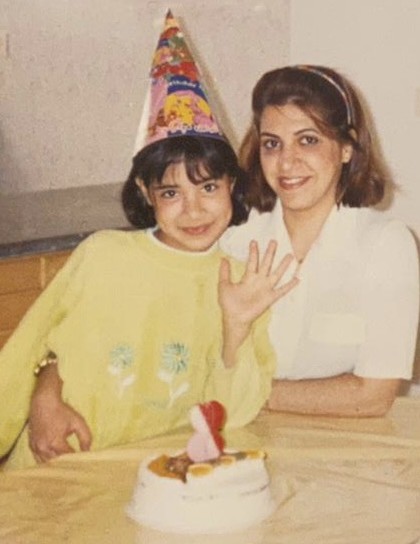
As a kid in Iran, Sara Rashidi MPH ‘23 grew up attending private religious schools without many worries. But at the age of 15, a letter from the U.S. Citizenship and Immigration Services sent to her grandmother’s home changed the course of her life. The letter that said “your green card request has been approved” finally arrived—15 years after Sara’s father had applied to come to the U.S, when she was just one-year-old. In less than two months, Sara’s family decided to move to the U.S. and start a new life, even though her father has continued to travel back and forth due to his job in Iran.
Before they could move to their new home in California, Sara had to navigate a tricky exit from Iran. She attended religious schools growing up, but her family wasn’t as religious nor as strict as her schools were. When she asked her parents why they sent her to a religious school, her dad was clear that, while he was always expecting that she would come to America one day, her parents wanted to give her a solid foundation of morals and values before she did.
In hindsight, Sara is grateful that parents sent her to good schools and to have been raised in a family that was free of the restrictions she faced in those schools. She didn’t know it at the time, but these experiences would shape her future career goals.
“As a kid I always feared, ‘what if the school principals see me on the street without wearing a hijab?’” she said. “They could…fire you from the school for not wearing a hijab. That was how strict the rules and restrictions were.”
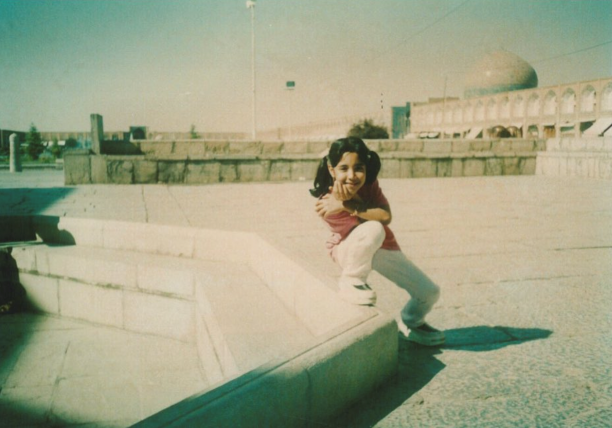
When she and her mother decided to move, her school’s administration was unhappy with her departure. Nevertheless, she continued the process and flew to Dubai for immunizations and to prepare her green card documentation for the next step in their lives—moving to America.
“What was really difficult was being disconnected from my family,” Sara said. “I was visiting my grandma every weekend and then suddenly I had no one.”
Sara’s mother was an inspiration to her as well since they came together to California without her father being there full-time. While her dad was initially able to support them, economic sanctions on Iran in 2013 meant that he was no longer able to send them financial support.
It was a difficult situation, but they worked through it together. Sara and her mom both attended community college and even took a chemistry course together where they became lab partners. Sara says their chemistry professor was extremely supportive of them; she was also Iranian and had studied with her own mother as well.
While Sara was attending college in hopes of later moving onto medical school, she was also inspired by her mother, who was attending college to find a better paying job as soon as possible.
“All of our hope was on my mom, who was attending college so that she could support us, and it was really difficult,” she recalled. “She was working a low-wage job and I was also working, but I couldn't work full-time because I was also attending school.”
The fact that [my mom] didn’t give up because we needed to survive in this country and we needed a source of income, has inspired me to persist. I know that with perseverance and hard work, overcoming any challenge is possible.
Despite working while attending school, and still not being proficient in English, Sara’s mother studied intensely, got accepted to nursing school, and passed her board exams. While Sara had helped her to study for classes, she wasn’t able to help her mother take the exam. Her mother persevered; re-taking the exam four times before finally passing. She has been enjoying her career as an RN since then.
“The fact that she didn’t give up because we needed to survive in this country and we needed a source of income, has inspired me to persist. I know that with perseverance and hard work, overcoming any challenge is possible,” Sara reflected.
After finishing community college, Sara transferred to UCLA where she grew her aspirations beyond becoming a physician. She volunteered with Flying Samaritans, a non-profit, student-run organization, that provides free health services and health education to people in Baja California, Mexico. She also worked with homeless individuals and refugees, which were some of her most meaningful experiences. “After I moved here, I experienced a lot of instability in life and just a lot of uncertainties and separation from the people that I love,” she remembered.
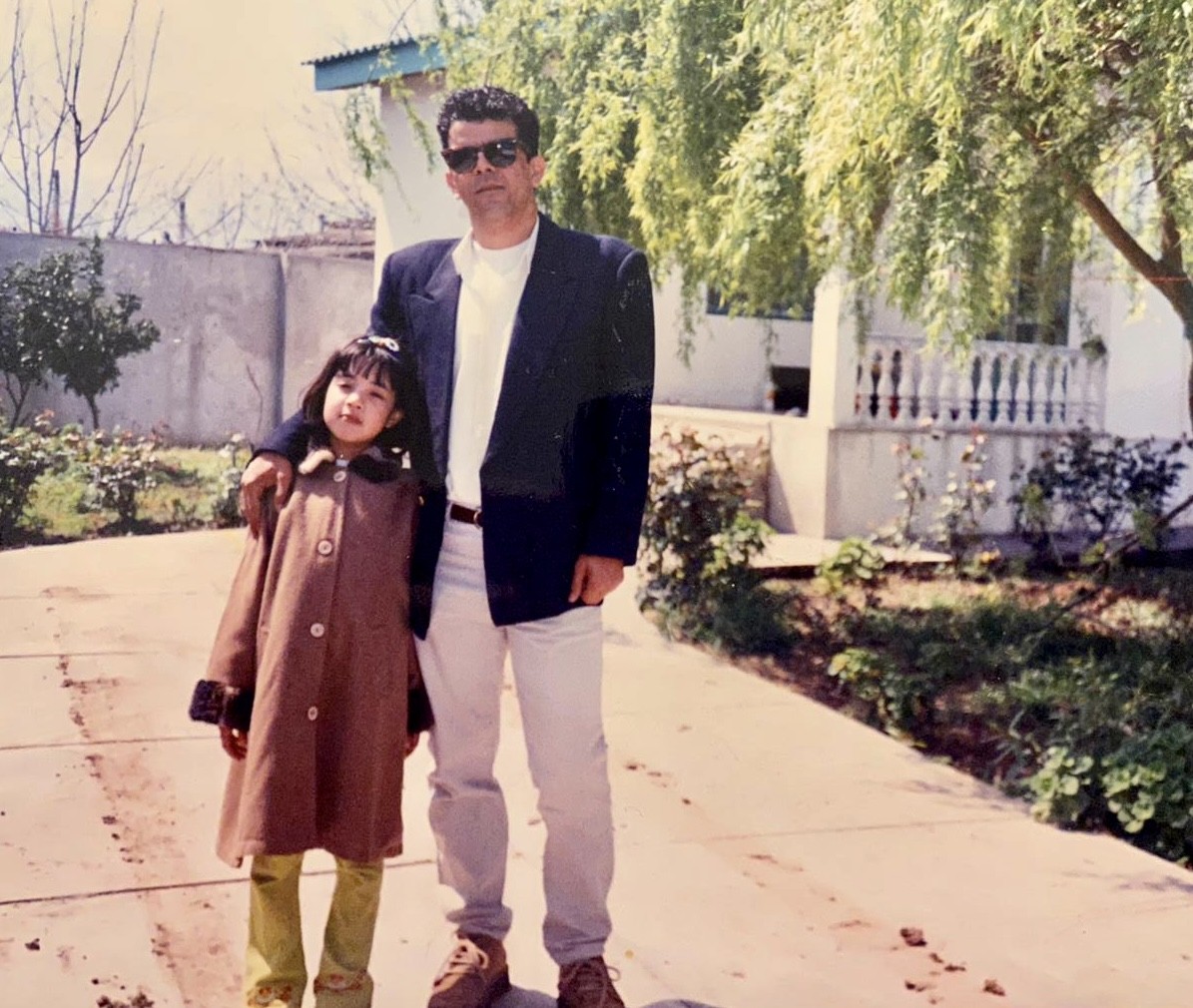
As a child in Iran, Sara wanted to become a lawyer, but a teacher told her that it wasn’t a safe profession for her—a woman in Iran—to pursue. “Women cannot become verdict speaking judges in the Islamic Republic of Iran, and human rights lawyers risk imprisonment and harsh punishments,” she said. After graduating from UCLA and taking gap years to work in various healthcare and non-profit industries, Sara gained a bit more clarity and revived her passion for economic and political development and, in particular, the impact of politically-driven laws on health regulations.
Once Sara made it to Columbia’s Mailman School of Public Health, she found that her cohort was composed of many students with parents working in professional fields, or whose families were more privileged. As a first-generation student, Sara says she loves hearing from other first-in-family students with similar experiences or struggles because she feels she can both learn from them, and hopefully be an inspiration to some. She also knew that she was capable of doing more.
“I still had that fire in me for questioning certain policies and international relations that I once wanted to pursue back in Iran,” she said. “I never had the chance to sit by myself and dare to think about what would happen if I could get a degree in this and see where it takes me. I was way deep inside my science books and the cultural reputation of wanting to be called ‘doctor’ - referring to medical doctor- It was just realizing…‘what if I just give this interest of mine a chance and wait on medical school for now?’”
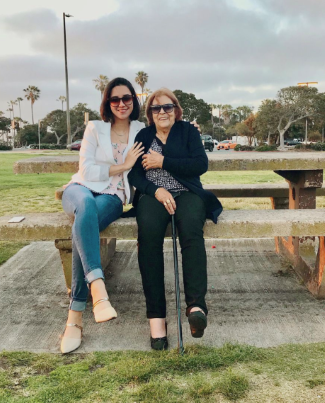
Sara was recently accepted into a dual degree program and is now also considering pursuing a master of international affairs at Columbia’s School of International and Public Affairs. She says she was drawn to the Mailman School of Public Health for their international efforts and has had an opportunity to meet students from around the world there. Additionally, pursuing a degree in international affairs is what she believes will help fill in the gaps about understanding the limitations and approaches when it comes to sustainable development and policy within public health.
“Higher education and more schooling will create a foundation where I will be equipped with skills, knowledge, and connections to translate the needs of those like my family, construct policies into practice, and drive positive health, social, and economic impacts. I want to empower individuals to take charge of their needs and actually be given the space and freedom to do so,” she said.
It still strikes me that I would share a classroom desk with those whose fathers are responsible for killings of many Iranian civilians and crimes against humanity. That I would have to participate in the congregational prayer behind them for the sake of my GPA.
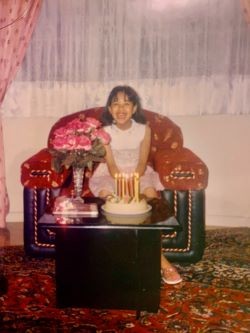
Reflecting on her experience going to strict religious schools in Iran, Sara says she’s happy she was able to have a firsthand understanding of them, and only realizes now how close she was to some of the people making restrictive policies for women and other marginalized populations in Iran, including some of her classmates’ fathers. “Thinking back, it still strikes me that I would share a classroom desk with those whose fathers are responsible for killings of many Iranian civilians and crimes against humanity. That I would have to participate in the congregational prayer behind them for the sake of my GPA.”
Women’s History Month carries extra significance for Sara, as she remembers so much about the treatment of women in Iran. She says women and activists there still face physical and emotional challenges, even time in prison for seeking basic fundamental human rights. Female activists who have challenged the Islamic Republic’s restrictive social laws have been imprisoned for crimes such as “promoting prostitution” or “insulting Islam.”
“Whenever there is something like International Women’s Day, I always think about women in my own country that are bravely fighting for basic rights,” she said. “I think these women deserve an extra celebration and recognition during this time.”
Sara Rashidi is a first year candidate in the Department of Health Policy Management at Columbia Mailman Public Health and pursuing a master of international affairs at Columbia’s School of International and Public Affairs.
